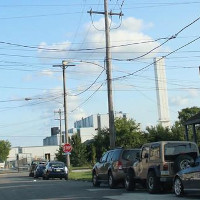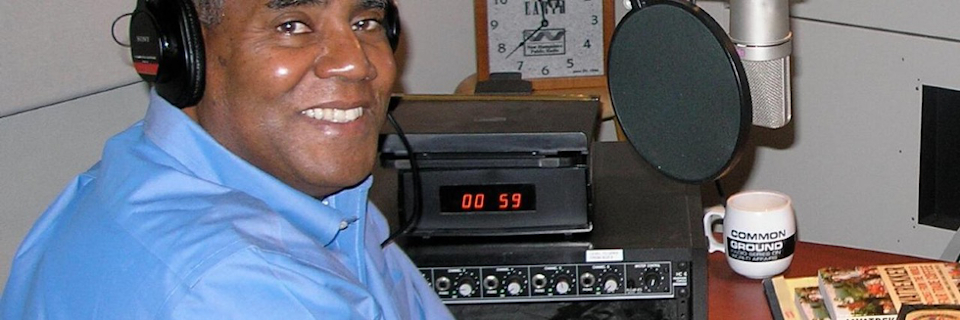
Complex Air Pollution and Public Health
Thousands of people across the United States live near industrial facilities and petrochemical plants that expose them to higher levels of air pollution, but chemical exposure risk is commonly regulated one chemical at a time. A study conducted by a group of Johns Hopkins researchers found that “fence line” residents are at higher risk for multiple health problems because of the toxic mix of air they breathe.

Under Alien Skies: A Sightseer's Guide to the Universe
Astronomer Philip Plait wondered what it would be like to walk on Mars, fall into a black hole, or fly through a nebula, so he wrote a book, Under Alien Skies: A Sightseer’s Guide to the Universe. He reveals the strange colors of a sunset on Mars, what it’s like on a planet orbiting binary stars, the unique challenges of landing on an asteroid, and more.

Animal Self-Medication
A paper published in the journal Scientific Reports describes the case study of an orangutan who treated and healed his own wound. Zoologists have long seen behaviors of self-medicating in the animal kingdom, but until now it has rarely if ever been documented in scientific literature. Michael Huffman, an ecologist who reviewed the paper, discusses how some animals heal themselves.
This Week’s Show
August 8, 2025
listen / download

Complex Air Pollution and Public Health
listen / download
Thousands of people across the United States live near industrial facilities and petrochemical plants that expose them to higher levels of air pollution, but chemical exposure risk is commonly regulated one chemical at a time. A study conducted by a group of Johns Hopkins researchers found that “fence line” residents are at higher risk for multiple health problems because of the toxic mix of air they breathe.

Under Alien Skies: A Sightseer's Guide to the Universe
listen / download
Astronomer Philip Plait wondered what it would be like to walk on Mars, fall into a black hole, or fly through a nebula, so he wrote a book, Under Alien Skies: A Sightseer’s Guide to the Universe. He reveals the strange colors of a sunset on Mars, what it’s like on a planet orbiting binary stars, the unique challenges of landing on an asteroid, and more.

Fireflies at Risk
listen / download
The summertime magic of fireflies lighting up at dusk is facing threats because of climate change and habitat destruction. Living on Earth’s Ashanti Mclean shares a few tips that can help to protect firefly species.

Animal Self-Medication
listen / download
A paper published in the journal Scientific Reports describes the case study of an orangutan who treated and healed his own wound. Zoologists have long seen behaviors of self-medicating in the animal kingdom, but until now it has rarely if ever been documented in scientific literature. Michael Huffman, an ecologist who reviewed the paper, discusses how some animals heal themselves.
Special Features
Field Note: "After the Storm"
Living on Earth's Explorer-in-Residence, Mark Seth Lender, ruminates on the storm as it meets the shore.
Blog Series: Mark Seth Lender Field Notes
Field Note: "Countermeasures"
Living on Earth's Explorer-in-Residence, Mark Seth Lender, shares observations about shorebirds in flight.
Blog Series: Mark Seth Lender Field Notes
...Ultimately, if we are going prevent large parts of this Earth from becoming not only inhospitable but uninhabitable in our lifetimes, we are going to have to keep some fossil fuels in the ground rather than burn them...
-- President Barack Obama, November 6, 2015 on why he declined to approve the Keystone XL Pipeline.
Donate to Living on Earth!
Living on Earth is an independent media program and relies entirely on contributions from listeners and institutions supporting public service. Please donate now to preserve an independent environmental voice.
NewsletterLiving on Earth offers a weekly delivery of the show's rundown to your mailbox. Sign up for our newsletter today!
 Sailors For The Sea: Be the change you want to sea.
Sailors For The Sea: Be the change you want to sea.
 The Grantham Foundation for the Protection of the Environment: Committed to protecting and improving the health of the global environment.
The Grantham Foundation for the Protection of the Environment: Committed to protecting and improving the health of the global environment.
 Contribute to Living on Earth and receive, as our gift to you, an archival print of one of Mark Seth Lender's extraordinary wildlife photographs. Follow the link to see Mark's current collection of photographs.
Contribute to Living on Earth and receive, as our gift to you, an archival print of one of Mark Seth Lender's extraordinary wildlife photographs. Follow the link to see Mark's current collection of photographs.
 Buy a signed copy of Mark Seth Lender's book Smeagull the Seagull & support Living on Earth
Buy a signed copy of Mark Seth Lender's book Smeagull the Seagull & support Living on Earth









.png)
